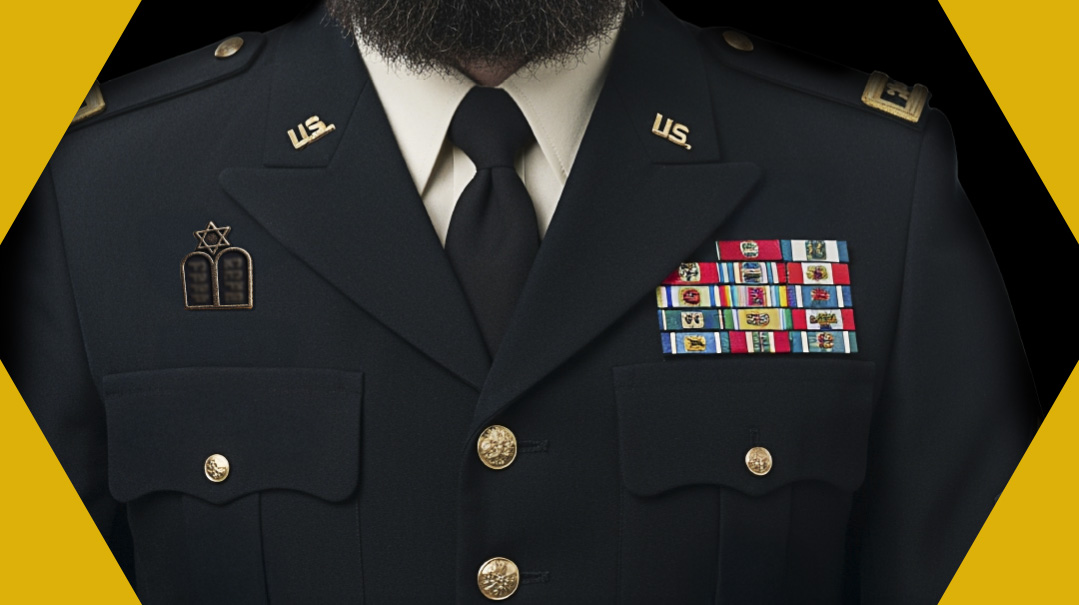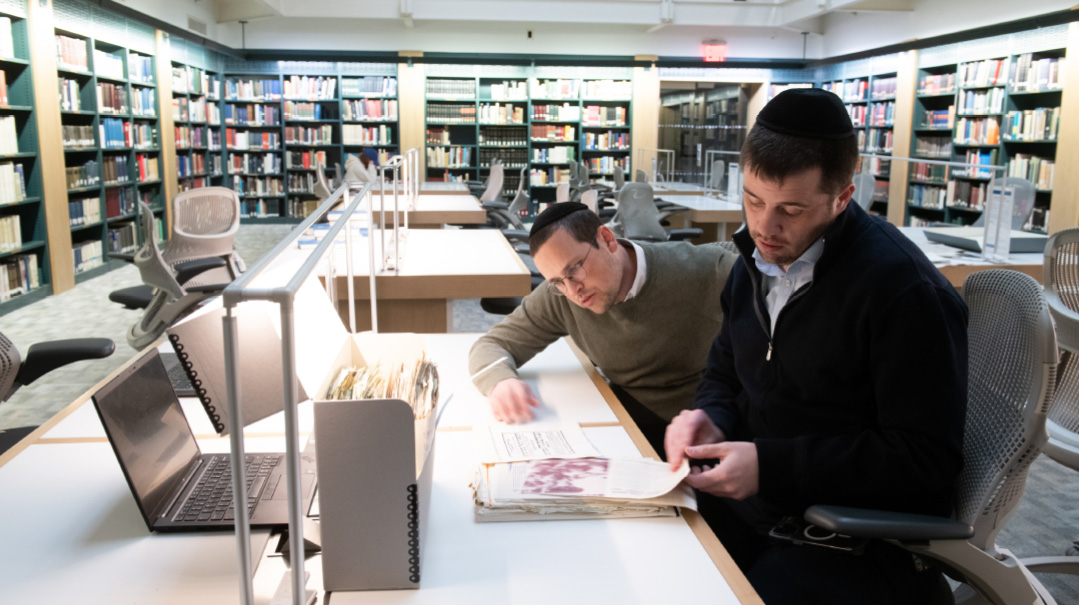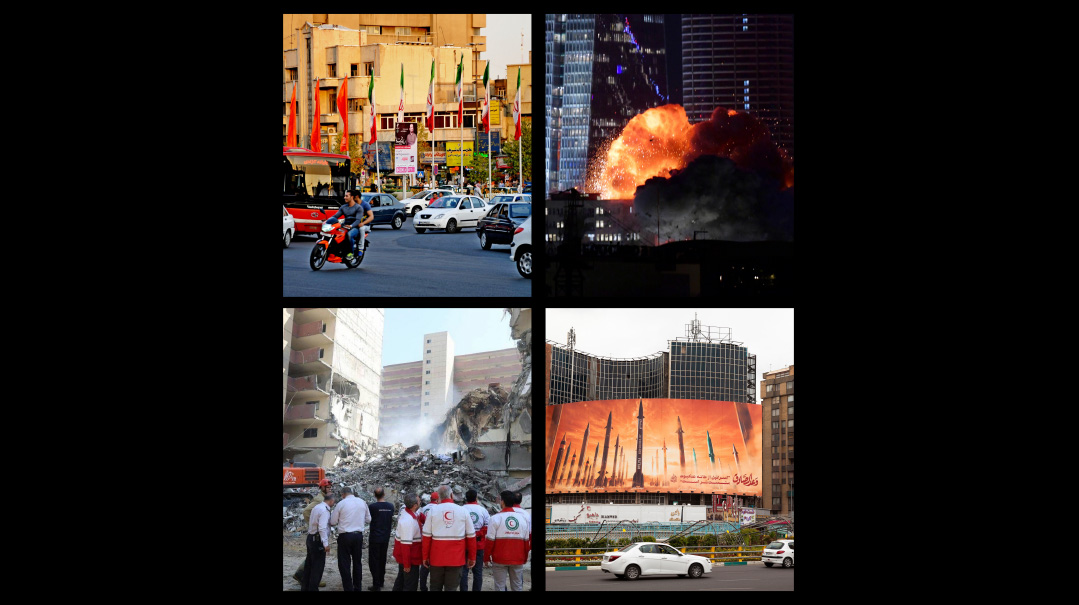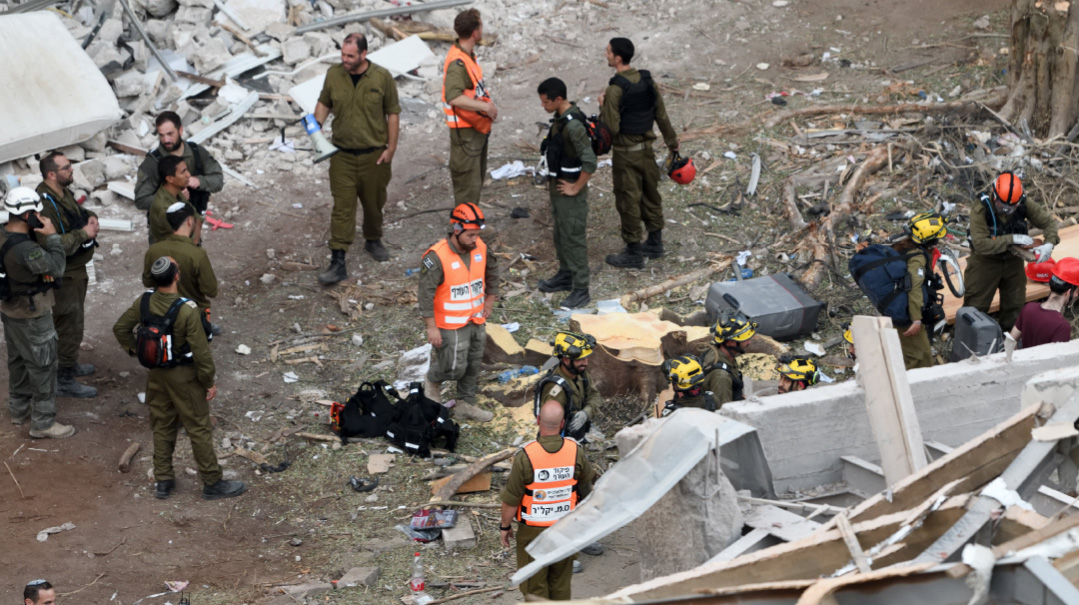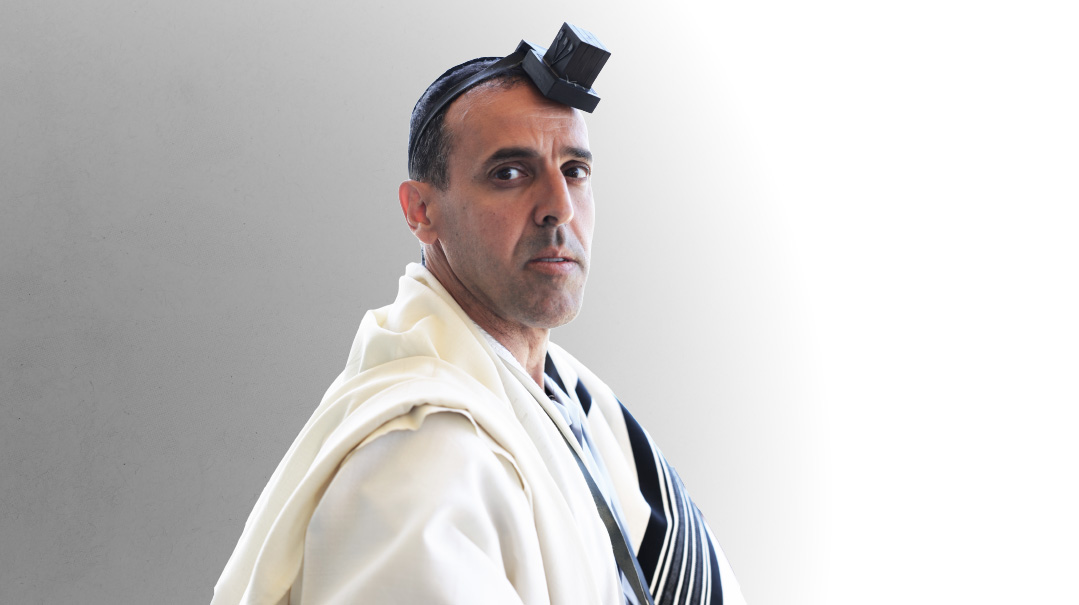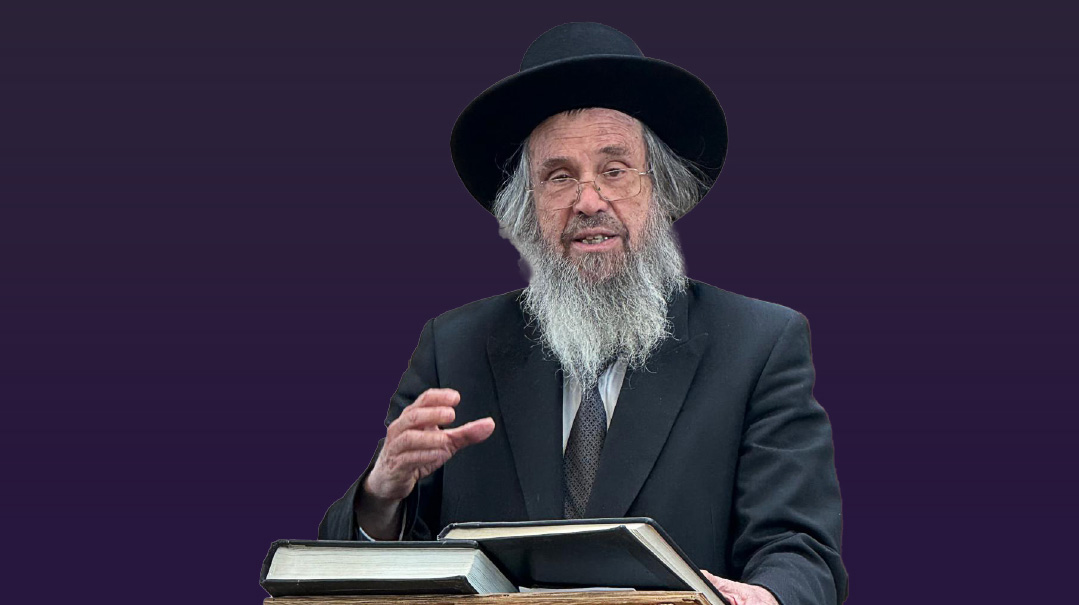No Safe Spaces
| April 25, 2023A first-person account from America’s hotbed of radical progressivism: college campuses
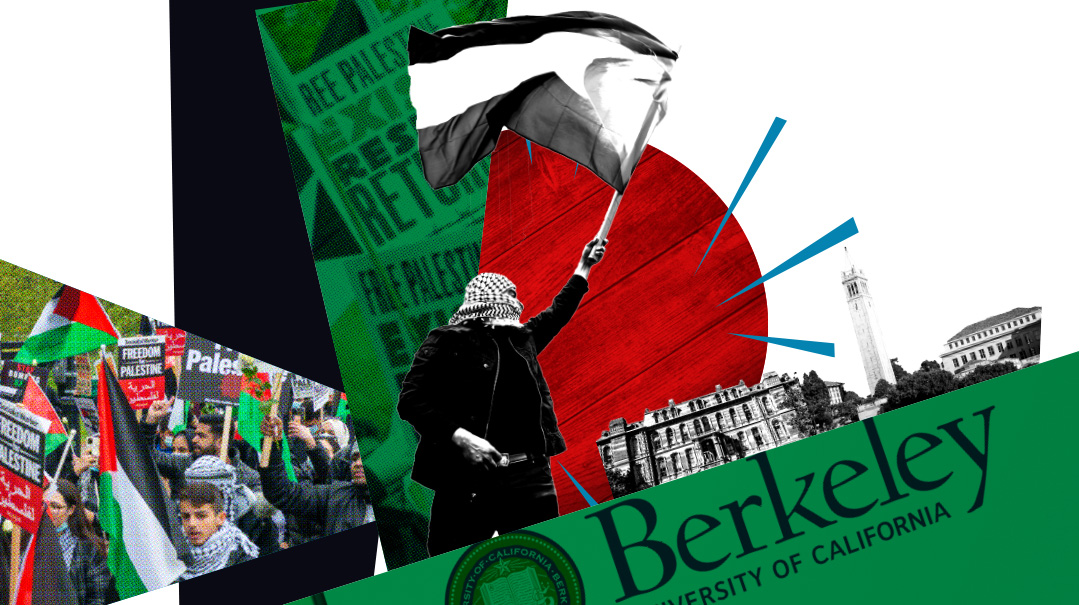
AT
first, I thought my eyes were playing tricks on me when I saw the student bulletin advertising an upcoming event on campus: “Z*on*sm Is Not Welcome.” I quickly deciphered the strange characters, but still didn’t understand why it had been rather haphazardly encrypted. I asked a friend if he could explain what was intended by the advertisement.
“An IDF soldier is coming to speak to some Jewish students, and it’s causing an uproar,” he said. “Students for Justice in Palestine wants him censored.”
As for the weird spelling, he said, “The word ‘Zionism’ may make people feel too unsafe, so they asterisked some of the vowels.”
My confusion was only amplified the next week, when I saw a new advertisement posted on the quad: “Glory to Our Martyrs.” It was an unmistakable Muslim battle cry, “glory” referring to life in paradise, and the “martyrs” being Palestinian terrorists.
Welcome to life at America’s elite universities, where Jewish students either find themselves subject to violence and death threats if they speak out against this rhetoric — or they adopt it themselves, hoping to cloak themselves in progressive righteousness and thereby avoid being targeted.
On California’s college campuses, largely unbeknownst to the wider American public, Jewish students face a radical strain of anti-Semitism. Terrorism earns support from university administrators, while academic prestige is wielded to defend violence in the name of “pluralism.” Campus doctrines mandate a Manichean hatred of Israelis, who are tarred as imperialists, and their American counterparts become guilty by association.
In 2010, 84 percent of Jewish college students favored Israel in the conflict with the Palestinians; in 2016, 57 percent did; in 2020, only 34 percent of Jewish Americans aged 18 to 29 opposed BDS (boycott, divest, sanction), and only one in three believed Hashem gave the Land of Israel to the Jews. Among American millennials in general, support for the Palestinian cause has tripled in the last three years.
The precarious position of Jewish students on American college campuses was perhaps nowhere better illustrated than at a student debate held at the University of California, Berkeley, last month.
Students who had been elected to the UC-Berkeley student body Senate were debating a proposal for the university to adopt the definition of anti-Semitism promulgated by the International Holocaust Remembrance Alliance (IHRA). Already accepted by over 1,100 international agencies, it is the most mainstream metric for recognizing anti-Semitism, defining it as “a certain perception of Jews, which may be expressed as hatred toward Jews. Rhetorical and physical manifestations of anti-Semitism are directed toward Jewish or non-Jewish individuals and/or their property, toward Jewish community institutions and religious facilities.”
Seems straightforward enough. But after seven hours of debate that lasted until three a.m., the student Senate refused to pass the proposal. An opportunity for acceptance, a “learning moment,” became instead an evening of disinformation that included blood libels and death threats. According to one student in attendance, “A conversation intended to protect Jewish students became a kangaroo court of humiliation and degradation… Students who asked for protection were met with terror and screaming provocations.”
Rather than dismiss these rapidly shifting social tides as something isolated to universities, we cannot forget that students holding such anti-Semitic views will soon graduate college and enter the real world. Indeed, for those trying to predict future American ideological trends, universities offer a unique vantage; they are always four years ahead of the pack.
For those not exposed to the reality of today’s campus life, the atmosphere of anti-Jewish bigotry sounds hard to believe. But my experience as a student at the University of California at Davis, not too far from Sacramento — an institution described as one of America’s “public Ivies” — is a snapshot within a larger national picture of the triumph of militant progressivism that threatens Jewish students in America.
No Kumbaya
IN 2019 I first walked UC-Davis’s grassy promenade, along which towering oak trees shade massive brick edifices and a river winds through campus. As a teenager only loosely affiliated with traditional Judaism, the prospect of attending a competitive university seemed like an important opportunity. I could compete on a Division I track and field team, develop a career, and make new friends.
Initially, I found many student beliefs at the university confusing and strange, but I was told, “It’s just California.” Yes, personal pronoun introductions were necessary at the start of each new class, running the full range of “he,” “she,” “they,” “it,” “ze,” “zir,” and more. And of course, we had to ritually acknowledge that our campus sat “on stolen land,” referring to the Native Americans.
However, these policies seemed somewhat tame overall, and as a fellow minority, after all, I figured this newfound tolerance might grant me some sort of political protection. “See, Professor? I’m Jewish, and my people were also killed. I’m innocent of this textbook’s allegations!”
Unfortunately, my enthusiasm to sit together and sing “Kumbaya” was not met in kind. In fact, I would later find out I was guilty of complicity, as a Jew, for refusing to condemn Israel. Right at the beginning of my prestigious college experience, the campus buildings were festooned with posters promoting a new event on campus: “Apartheid Week.”
This is not something left over from the days of campus protests against white minority rule in South Africa. Today’s “Apartheid Week” is an administration-approved initiative slamming the only remaining apartheid government in the world — Israel. Every winter during Apartheid Week, the two-acre quad becomes host to a conglomerate of students, professors, and religious leaders demanding “justice for the colonized.”
Upon further discussion, I realized that “justice” meant support for the terrorist murderers of Hamas. This has become a mainstream idea at UC-Davis. In wake of Hamas rocket attacks in 2021, every UC school in the state (except one, UC-Merced) gave statements publicly condemning Israel. At Davis specifically, five academic departments united to decry “state-sanctioned violence,” “anti-Arab and anti-Muslim racism,” “apartheid,” “settler colonialism,” and “systemic racism.” Some also managed to work in that “Palestine is a feminist issue.”
Apartheid Week presents the perfect opportunity for progressive students to voice the rhetoric that has been mounting all year in the classroom — namely, that Israel is guilty of genocide, and that Israel is evil for having a stronger defense system than the Palestinians. While this latter argument sounds laughable, it dovetails perfectly with the university’s infatuation with “equity,” which assumes that unequal power is inherently immoral. Because Palestine cannot deploy military technology on par with Israel’s, the conflict is considered an unfair and immoral conflict. One side is stronger than the other.
For impressionable students still forming their own philosophies and worldviews, it is not surprising that they should flock to the Palestinian banner in the name of “defense for the oppressed.” But tragically, some of Palestine’s most fervent American supporters are Jewish students, with organizations like IfNotNow (a misappropriation of Hillel’s statement in Pirkei Avos 1:14) and J Street flourishing.
When I saw J Street campaigning on campus, I was only too eager to ask their representatives some questions and perhaps share my own views.
“Basically, Israelis are conquering Palestinian areas and legislating racist attacks,” one Jewish female J Street campaigner explained to me, bringing up the eviction of Arab squatters from Sheikh Jarrah and other East Jerusalem localities.
Rather than debate Israel’s legal freedoms with her, I opted for a different approach, drawing on the knowledge of Judaism I had been developing on campus.
“You know, there’s this thing called the Torah, and it’s an eternal blueprint for creation, and it guarantees the Land of Israel to all Jews for all time,” I offered. “Spiritually, the land holds special Divine qualities, as G-d’s eyes are constantly watching it.”
But at this point, she said she had to excuse herself for a “trigger walk.” In psychological lingo, a trigger is something that evokes a painful emotional response. On college campuses these days, the term is used to refer to anything that disrupts one’s preconceived social, political, or intellectual notions. About ten minutes later, after she had finished pacing the quad, reconciling her ethnic studies course with basic truths, she was thankfully able to resume the conversation.
I did not follow up to see if she went to AIPAC, but I think her “triggering” may have at least led to a more open-minded attitude toward her heritage.
This conversation was not an isolated anecdote; it represents a national trend, as less than half of young Jews feel somewhat attached to Israel. Surveys record a 27 percent drop in support for Israel occurring every six years among Jewish college students. Among non-Jews, support for Israel has declined even more in some unexpected places. For young Evangelical Christians, who have historically favored Israel on religious grounds, Israeli support plunged from 75 percent in 2018 to 34 percent in 2021. The mainstream American support for Israel of yesteryear has faded away, and for the few students who are unafraid to display their Jewish pride, both externally and ideologically, they are increasingly being tarred as black sheep.
It’s sad and telling that violent rhetoric from the other side draws no reaction. No one took trigger walks when Imam Ammar Shahin from the Islamic Center of Davis declared, “Oh, Allah, liberate the Al-Aqsa mosque from the filth of the Jews… Oh, Allah, count them one by one and annihilate them down to the very last one… Oh, Allah, make this happen by our hands. Let us play a part in this.”
For some reason, university administration also did not comment on the campus mosque’s call to jihad. For my part, whenever I walked to class, I would cross the street when the building’s colossal blue dome came into view.
Those lingering in the halls of academia engrossed in solving the ontological issues of inequity also need to expend recreational energy. Unsurprisingly, those outlets are also tarnished by anti-Semitic hatred.
I had the opportunity to participate in a Nerf Gun battle, a contest involving foam bullets and skateboards. However, I was dismayed to find a large black swastika graffitied beside the Nerf Gun battle ground.
And though the administration proudly declares that the university ranks among the most tolerant campuses, evidence suggests otherwise, as in recent years it has neared the top of surveys as the most anti-Semitic, with Harvard ranking the worst.
Maxim Sparks, a member of UC-Davis’s Jewish fraternity, AEPi, found himself on the blunt end of that statistic, when his fraternity’s building was also spray-painted with a swastika.
“The vandalism was rough on us, but I feel like it represents a bigger issue on campus,” Sparks told me. “Jewish students are afraid to express their Judaism. I have friends who don’t talk to me after I told them I want to study in Israel. You just don’t feel comfortable wearing a yarmulke around.”
Nationally, about half of the students in Jewish fraternities say they actively avoid carrying or wearing items that would identify them as Jewish, and 65 percent say they feel unsafe on campus.
While UC Davis’s anti-Semitism may rank abysmally, this has not fettered the campus Chabad shluchim, Rabbi Mendel and Dvoiri Greenberg, who continue to provide a Jewish support system for students, including Shabbos meals, challah bakes, Sinai scholars, and personal counselling.
For students seeking to keep kosher, this “second home” plays an important role, with the university refusing to accommodate its Jewish undergrads. When I wanted to start keeping kosher, I began attending campus board meetings where Jewish students could explain their dietary restrictions to faculty and dieticians. At one meeting, where the faculty seemed especially indifferent, I found myself clarifying that eating is important for human beings.
After a spate of bureaucratic wool gathering, they finally agreed to a compromise: reheated lasagne frozen for months in a mysterious bunker.
For some reason, Muslim students did not seem to encounter the same roadblocks to their dietary requirements. Every student cafeteria offered fresh, certified halal meals, and halal food trucks patrolled the campus. Despite all the campus calls for inclusivity, I was feeling remarkably excluded. As I continued to learn more Torah and grow in Yiddishkeit, the atmosphere of intolerance only exacerbated my sense of alienation, and I eventually decided to leave UC-Davis to attend a yeshivah in Jerusalem.
At nearby UC-Berkeley, where last month’s debate ended with the IHRA definition of anti-Semitism being rejected, 14 student groups signed a new bylaw last year pledging to prevent pro-Israel speakers from speaking on campus. In late 2022, two lawyers unaffiliated with the university reported the bylaw for violating Title VI of the Civil Rights Act, which states that “No person in the United States shall, on the ground of race, color, or national origin, be excluded from participation in… any program or activity receiving Federal financial assistance.”
The US Department of Education’s Office for Civil Rights recognized the case on December 17. But as of now, the anti-Israel bylaw, ratified last fall, still remains an unresolved federal investigation.
The UC-Berkeley law school’s dean, Erwin Chemerinsky, defended his university as a bastion of free speech; however, he also added that he saw “great concern about the Middle East and human rights violations by Israel” and “the plight of the Palestinians.” Technically, the dean himself, who is considered a Zionist on campus because he supports the State of Israel’s right to exist (not to mention the fact that he is Jewish), would also be banned from speaking under the bylaw.
Shay Cohen, who is president of UC-Berkeley’s pro-Israel Tikvah Club and leads educational programs, cultural events, and campus political advocacy, traces a large part of the problem to faculty attitudes.
“It is the professors who use their authority to exert a lot of influence over the students,” she explains. As a result, “the current stigma on campus is that all Jews are white, privileged individuals in positions of power, who are automatically assumed to support oppression. A lot of the students are just uninformed about Judaism, which allows the professors to subtly push their beliefs. And trying to rectify the situation on a legislative level is hard, because even among the Jewish students, there is so much disunity.”
Though Cohen is not quick to peg people as anti-Semites, she says that “when Jewish students in Berkeley, California, are blamed for actions of the Israeli government, this goes beyond ignorance.”
Still, she maintains a resilient attitude, and has no intention of leaving campus. “No, I would not recommend Berkeley to every Jewish student. But for me, the backlash makes me more proud of who I am.”
Talk to the Wall
West Coast Jewish students are bearing the brunt of the ideological assault whose next target is tomorrow’s America, and private universities are no exception. In Southern California, students at Claremont College’s elite campus (Claremont McKenna, Pomona, Pitzer, Scripps, Harvey Mudd) passed a BDS bill on Pesach, when faculty knew many Jewish students could not vote, as well as Christians who would be observing Easter.
When I visited the campus as a prospective student in high school, the tour guide showed me the “free speech wall.” The wall, formally named Walker Wall, was erected as a flood barrier by the college in 1956, and starting in the 1970s, students began spray-painting messages on it, which started a campus debate about freedom of speech and expression. My tour guide that day said she felt the free speech wall caused bigotry and should be removed.
That pretty much typefies attitudes toward free speech on campuses across the country. California is not an isolated case. Oberlin College, a small liberal arts college in Ohio known for its music conservatory and progressivism, suffers from the same maladies. J Street, a standard bearer for progressive Jews in Washington, is considered a right-wing organization on campus, which is truly a creative recalibration of the national dialogue.
“Being Jewish here is a crazy experience that is not for everyone,” said a religious studies student at Oberlin who wished to remain anonymous. The student, who recently became Orthodox through “an awesome Chabad on campus,” said that “the hardest part about becoming observant wasn’t so much keeping Shabbos and learning how to daven — it was realizing that Communism is wrong. I had to relearn a lot of the things I was taught here.”
When this student was a freshman, two student groups, Oberlin Students for a Free Palestine and Oberlin Jewish Voice for Peace, made a memorial for Palestinian Jihadi terrorists. “There were black flags planted on campus with the names and ages of actual suicide bombers listed and lionized.”
At Ivy League colleges, pockets of extremism have also cropped up. Brown University in Providence, Rhode Island, saw the construction of a ten-foot-high “apartheid wall” intended to remind students of the 440-mile-long border wall that Israel built to keep out terrorists in the West Bank. (Palestinian Islamic Jihad leader Ramadan Shalah once complained that the wall “limits the ability of the resistance to arrive deep within Israeli territory to carry out suicide bombing attacks, but the resistance has not surrendered or become helpless.”)
A Jewish student from Brown Uuniversity who wished to remain anonymous said that “any line between anti-Zionism and anti-Semitism was crossed when the words ‘Free Palestine’ were etched into the brick wall of our fraternity.”
To outsiders, these stories may be difficult to imagine, but for Jewish students on the front lines of this battle, their identities are under attack. Not every anti-Semitic incident involves physical violence, and not every incident is noticed or recorded. But American Jews who are far removed from this poisonous atmosphere are well advised to take note, and plan accordingly: The attitudes found on college campuses today foreshadow events we will see on America’s streets tomorrow.
(Originally featured in Mishpacha, Issue 958)
Oops! We could not locate your form.

